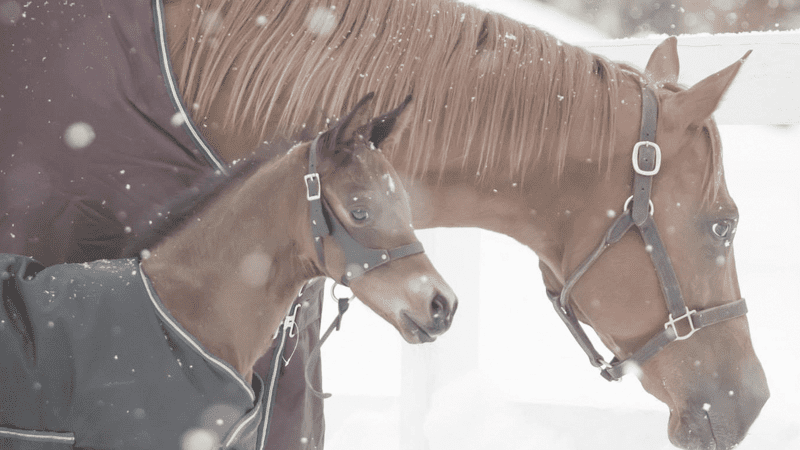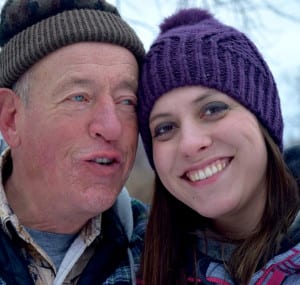The smell of spring and sight of green grass may be something often times taken for granted for much of the population, but for the few living very north of the equator, spring is a sign that they have survived yet another frightful winter season. For horse owners, trainers, and barn owners alike, winter in the great white north is not always so welcomed when the blustering winds, sub zero temps, and winter storm systems dump many feet of snow canvasing the landscape in white.
As a Michigander my entire life, I will be the first to admit that the only thing winter has to offer me is the beauty, outside of that, it makes horse ownership much more difficult. The winter months often times are accompanied with the winter blues, and as a result horse owners are faced with doubt. Is horse ownership worth it? Is attempting to prepare for the first show of the season worth it when you can only ride indoors for three months straight?
Frozen water buckets, frozen fingers and toes, fresh horses, the list goes on…makes preparing for the upcoming show season a little tricky. But for me, winter is just a speed bump among the other three wonderful seasons. I do not have a heated or insulated barn; I have an indoor arena, but unfortunately when temps dip in the single digits and below, my horse stays bundled up and I miss out on valuable riding time.
In recent years, I have been showing young horses and not being able to prepare them adequately for the first show of the season puts me at a disadvantage. However, showing on my local show circuit, most all fellow competitors are faced with the same disadvantages. I spoke to a few trainers who have lived through many brutal winters with horses.
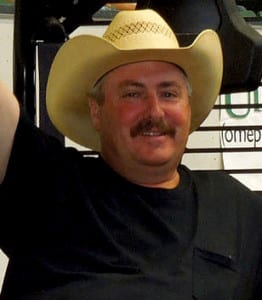 AQHA trainer Derek Hanscome resides in Northeastern, Canada. “Residing so far north definitely makes horse showing in the winter a huge challenge,” Hanscome says. Fortunately, Derek’s barn is heated. However, travel in the winter months proves to be a challenge and often times, his local show season runs May through September. “I believe that living in a colder climate puts me and my horses at a disadvantage because my horses do not get out much after the AQHA World Show in November.”
AQHA trainer Derek Hanscome resides in Northeastern, Canada. “Residing so far north definitely makes horse showing in the winter a huge challenge,” Hanscome says. Fortunately, Derek’s barn is heated. However, travel in the winter months proves to be a challenge and often times, his local show season runs May through September. “I believe that living in a colder climate puts me and my horses at a disadvantage because my horses do not get out much after the AQHA World Show in November.”
However, fellow Michigander, Tom Robertson does not believe preparing for show season in a colder climate is a disadvantage. Robertson trains and exhibits world-class halter horses.
“Training halter horses is very different than training performances horses,” Robertson mentioned. When asked if it is hard to prepare halter horses during the winter months when they cannot be outside, he informed me that many halter horses do not get much outside time, no matter the weather conditions.
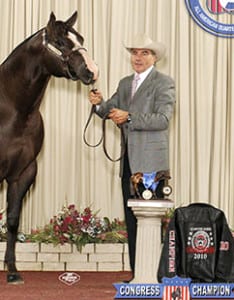 Robertson agreed with Hanscome on the fact that travel during the winter months is not worth the risk of pulling a trailer down icy roads in freezing temperatures. Due to Robertson’s barn being heated, the cold temperatures do not affect him and his training program. “I actually enjoy the break that winter provides,” Robertston said referring to his otherwise grueling show schedule.
Robertson agreed with Hanscome on the fact that travel during the winter months is not worth the risk of pulling a trailer down icy roads in freezing temperatures. Due to Robertson’s barn being heated, the cold temperatures do not affect him and his training program. “I actually enjoy the break that winter provides,” Robertston said referring to his otherwise grueling show schedule.
Trainer Gretchen Mathes of Powder Brook Farm located in Harwinton, Connecticut splits time between Florida and her home in Connecticut during the winter months. Her riding arena is not heated nor insulated, however, the barn offers an escape from the colder riding conditions. Upon returning from Florida, Mathes’ main focus is shifted to preparing for the upcoming shows in March. This time is used to improve riding skills and condition horses.
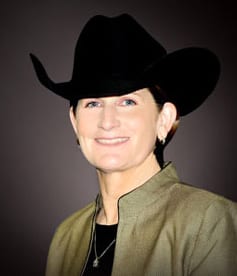 “Mentally and physically, we continue training and also use our treadmill to help keep them toned and happy. We do give lots of great lessons during this time to owners that want to improve their skills,” Mathes states.
“Mentally and physically, we continue training and also use our treadmill to help keep them toned and happy. We do give lots of great lessons during this time to owners that want to improve their skills,” Mathes states.
When asked whether or not she believes being from a colder climate puts riders at a disadvantage preparing for show season, Mathes says that travel is the biggest issue.
“The biggest disadvantage probably is winter storms may prevent us from getting to some shows, but usually after Florida, we stay home and prepare for March/April shows, so it’s not much of an issue,” Mathes says.
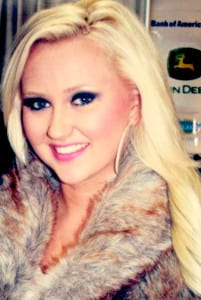 Ohio native, Dakota Diamond Griffith takes a different approach to the winter months and heads south to Venice, Florida. Dakota believes that it is a huge disadvantage to prepare for show season in blustery winter conditions. She noticed much improvement in her horses’ mental and physical health since the move, and attributes it to the daily near perfect weather conditions.
Ohio native, Dakota Diamond Griffith takes a different approach to the winter months and heads south to Venice, Florida. Dakota believes that it is a huge disadvantage to prepare for show season in blustery winter conditions. She noticed much improvement in her horses’ mental and physical health since the move, and attributes it to the daily near perfect weather conditions.
“I started hauling one to two colts to break in Florida each year when we stayed at Fox Lea Farm, and found that they flourished,” Dakota says.
Griffith strongly believes in quality turn out time for her horses, and although her father built her all weather turnouts in Ohio, the cold temps and frozen ground are neither ideal nor safe for show horses.
“The move allows me to operate my training program full force year round,” she said. Dakota was also eager to mention facilities such as Fox Lea Farm who offer winter boarding facilities and RV hookups with perfectly manicured arenas for exhibitors to seek a break in the winter weather.
Overall, the biggest disadvantage preparing for show season in colder climates belongs to those that do not have a heated barn. It makes horse ownership that much more challenging. However, no one, including the trainers we talked to, has ever told me it wasn’t worth it.
Thankfully, I have great news for my fellow northerners! Here in Michigan–not only do I see grass, but I have been able to ride in just a sweatshirt, not two sweatshirts, a jacket, gloves and hat. I think it’s safe to say, spring has sprung!

About the Author: Minae Zomer (pictured left) is a recent college graduate from Western Michigan University and currently juggling her duties as Michigan Quarter Horse Queen.


